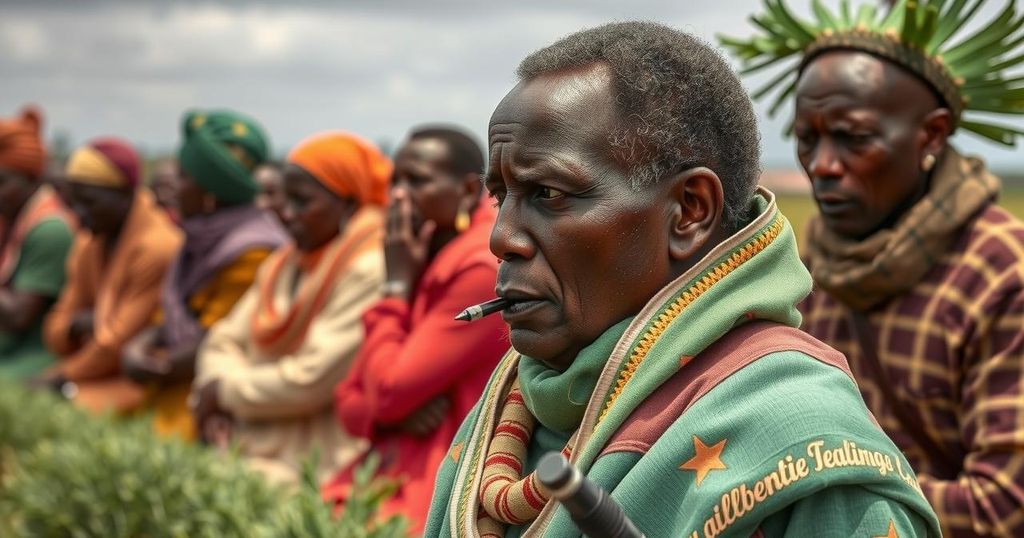Ethiopia Accuses Somaliland of Instigating Clan Conflicts

Ethiopia has accused Somaliland’s security forces of inciting clan conflicts, particularly highlighting a recent incident in which the security chief of Harshin woreda was killed. Officials from both nations met to discuss the escalating violence, which has seen significant casualties among civilians and police. Somaliland denies government involvement, blaming armed individuals from their region. Ethiopian officials urge immediate withdrawal of Somaliland troops and call for peaceful resolutions, emphasizing the historic peace between the two regions that is now under threat.
Ethiopia has raised concerns that the security forces of Somaliland are contributing to clan conflicts within its borders. This assertion emerged during a security meeting in Jigjiga, where officials from both jurisdictions addressed recent violence linked to disputes between Somali clans near the Somaliland border in the Harshin woreda.
Recently, escalating grievances over grazing territories have resulted in severe confrontations, particularly in the Yoale kebele area. Mohamed Abdulahi Gedi, the security head of Harshin woreda, was killed, and his deputy was injured while trying to mediate the complications in the district. This incident further exacerbated the tensions, which have reportedly intensified, leading to casualties among both civilians and police personnel.
Reports indicate that approximately 50 civilians have been killed or injured, alongside about 30 Somali police officers, during the confrontations. Local sources have disclosed that security personnel from Somaliland allegedly participated in the violence, with the Somaliland authorities claiming that these fighters are not affiliated with their government. Conversely, Ethiopian officials contend that these armed individuals are members of the Somaliland army acting under the guise of civilian status.
In response to these allegations, a high-level security meeting was convened where Ethiopia’s Federal Police Commissioner, Demelash Gebremichael, expressed the need for a peaceful resolution to the clan disputes. Commissioner Demelash stated that there is evidence of active participation of Somaliland military forces in these recent clashes, urging for their immediate withdrawal from the border area.
There are claims of a plot initiated by former Somaliland President Muse Bihi Abdi, who vacated his position recently, and is suspected to have had ongoing influence despite stepping down. Meanwhile, as tensions remain high, the Ethiopian National Defense Force commenced operations to regain control of the affected area. This situation strains the historically peaceful relationship that Somaliland has had with Ethiopia since its declaration of independence in 1991, despite prior agreements made for mutual benefit between the regions.
The tensions between Ethiopia and Somaliland stem from protracted clan conflicts that have plagued the region, particularly in the Somali region of Ethiopia. The concerns raised by Ethiopian officials about Somaliland’s involvement highlight the complexities of clan dynamics that persist across the border. This includes disputes over vital resources, such as grazing lands, which can escalate quickly into violence. Historically, Somaliland has maintained a relatively stable and peaceful relationship with Ethiopia, making these recent developments particularly alarming for regional stability.
In conclusion, Ethiopia’s allegations against Somaliland regarding its involvement in clan disputes reveal a significant escalation in tensions along their shared border. The violent clashes have resulted in numerous casualties, prompting calls for intervention and peace. As both sides navigate this complex conflict, the need for dialogue and resolution is crucial to maintain stability in the region, given their longstanding but fragile relationship.
Original Source: capitalethiopia.com








